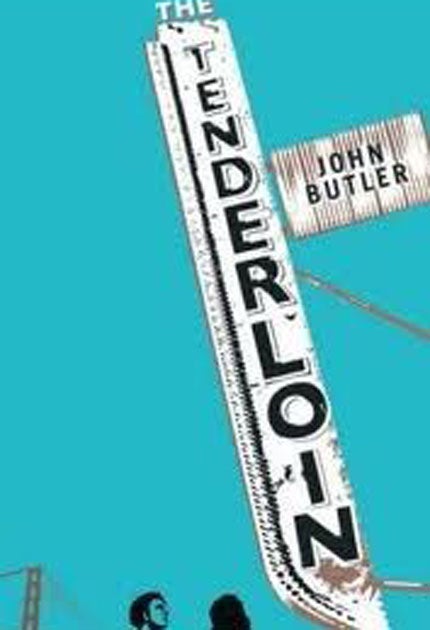The Tenderloin, By John Butler
Right start for a debut dotcom tale

Your support helps us to tell the story
From reproductive rights to climate change to Big Tech, The Independent is on the ground when the story is developing. Whether it's investigating the financials of Elon Musk's pro-Trump PAC or producing our latest documentary, 'The A Word', which shines a light on the American women fighting for reproductive rights, we know how important it is to parse out the facts from the messaging.
At such a critical moment in US history, we need reporters on the ground. Your donation allows us to keep sending journalists to speak to both sides of the story.
The Independent is trusted by Americans across the entire political spectrum. And unlike many other quality news outlets, we choose not to lock Americans out of our reporting and analysis with paywalls. We believe quality journalism should be available to everyone, paid for by those who can afford it.
Your support makes all the difference.Debut coming-of-age novels are nothing new, but ones that freshen the genre are. John Butler's The Tenderloin, about three young Dublin twentysomethings who head to San Francisco during the dotcom explosion of 1995, updates a familiar story without sacrificing those things we've come to expect – sexual exploration and identity, loneliness, the ambiguities of adulthood.
Butler's mid-1990s San Francisco is a city linked to the past (Deadheads in Haight-Ashbury) even as it leaps into the future (Windows 95). After bumming around looking for temp jobs, Evan lands work in the internet start-up Forwardslash as a runner for the programmers and other computer geeks whose moment in history has arrived. The novel begins at the end of Evan's narrative, at a company BBQ, where "the CEO, CFO and COO flipped meat for the minions and announced the news of our imminent IPO on the NASDAQ – you could not move in this town for acronyms." The future doesn't have time for complete words.
If San Francisco is the place of the future, then Ireland is the place of the past. Evan, his hero-worshipped best friend, Milo, and Milo's girlfriend, Roisin, are all in flight from history, even as their emigration to America re-enacts it. Virginal Evan is sexually repressed, his curious relationship with a mentor and father-figure subtly explored. In the end, however, even the promise of a new-world future can't alter his adherence to a life of "plausible deniability". Milo and Roisin leave behind in Dublin various family secrets, lies and betrayals. Butler doesn't dwell on history, but the past is always present even as the seductive future beckons.
There is a wry moment at the BBQ when the CEO makes a rousing speech, reminding his employees that "we are in the future business" but warning them not to be complacent. The past, for him at that moment, is the Apple computer, since "everyone here knew that Apple was being crushed mercilessly by Intel and Microsoft, consigned to the history books, an also-ran with so many similar versions of itself competing with other versions of itself that no one knew what it was any more, apart from slightly rubbish." The mistake, which we all know now, was to write off Apple and to think that many versions of the self are necessarily a bad thing. Like Apple, Butler understands that this may simply be an important part of growing up.
Join our commenting forum
Join thought-provoking conversations, follow other Independent readers and see their replies
Comments